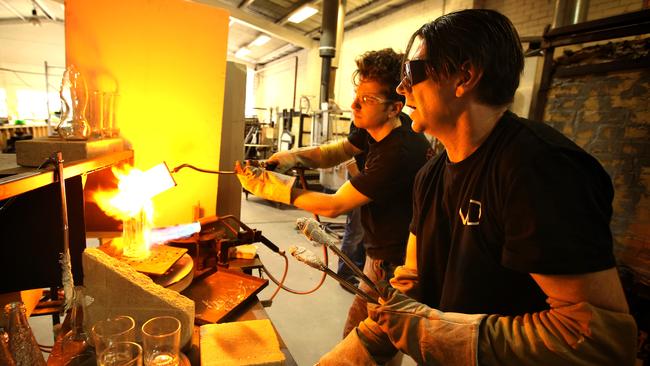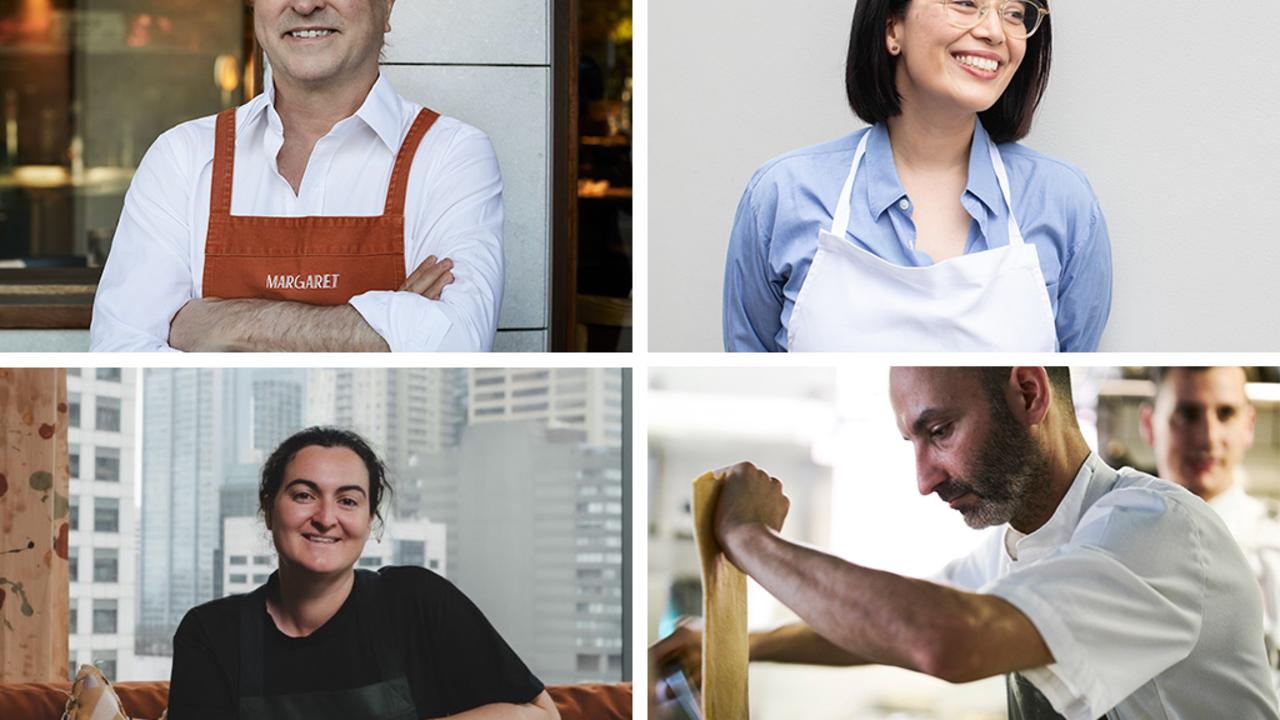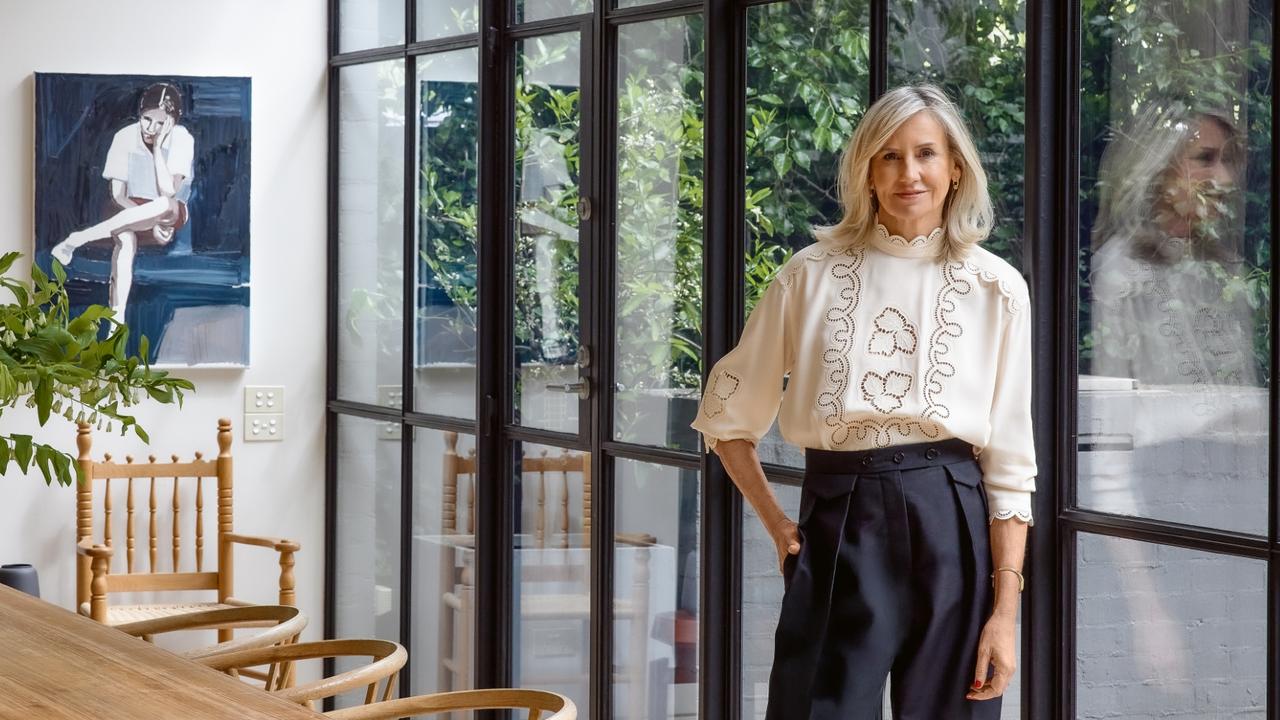Upcycled Glass breathes new life into hospitality industry waste
A start-up is taking the glass products usually thrown away by the hospitality industry and creating new art objects.

Remember the last time you stayed in a city hotel and the noise as waste disposal trucks came through at dawn emptying bins of a zillion wine, beer and spirit bottles, the glass detritus of our cafe, bar and restaurant industries?
Ever lie there thinking: What next? Mark Douglass did. So did his business partner Dean Jones.
And what they discovered researching the recycling of glass in Australia was disturbing. “At best we have glass recycling at 25 per cent, of which 15 per cent is post-commercial glass,” says Jones, who runs start-up business Upcycled Glass with Douglass, a glass artisan whose lighting designs can be seen in many Australian restaurants and homes.
“But we suspect as little as 10 per cent of glass vessels have a life beyond some kind of industrial re-use.”
“Post-commercial” refers to the empty vessels generated by the hospitality industry.
“The Australian waste management (industry) and private waste recyclers are not particularly transparent with their data,” says Jones, an artist, sustainability advocate and one-time pro-cyclist in Europe. “There’s a lot of smoke and mirrors with the real percentage of recycling.”
More disturbing, however, is that because of the contamination in glass recycling, most of what you and I and the restaurants discard — seemingly thoughtfully — in fact goes to landfill and other purposes such as road-making.
It gives rise to the duo’s motto of “Keep glass alive”.
Some post-commercial recycled vessels can, and are, re-used to produce more packaging glass, but if the glass is too small to be sorted, or contaminated in the discard phase, it cannot be used for producing packaging glass, instead going to other applications including use in asphalt, as abrasives, as backfill when laying pipes, road base and in concrete.
The Upcycled thinking? Why not repurpose the waste glass vessels or at least re-use the glass generated by the hospitality industry to make more glass products? “Replace the existing perception of recycling to that of upcycling as a process of metamorphosis,” as Douglass puts it.
From a workshop in the inner Melbourne suburb of Kensington, the pair are hoping to build a business that reduces waste and creates new products from old, saving glass and energy too.
Upcycled has collaborated with restaurants including Vue de Monde and Attica, Lee Ho Fook and the beverage company Capi to turn water bottles into glasses and carafes, platters and vases, plates and planters. The National Gallery of Victoria recently began stocking a range of Upcycled drinking glasses and carafes.
The next stage is a Melbourne CBD pilot. The City of Melbourne confirms it is in discussion with Upcycled about collaborating on a project in which the DeGraves Street Recycling Facility would be used as a central hub for glass collection. The hope is this pilot program, with sorted bottles in crates for collection, will create an advantage for all parties, cutting waste management costs for restaurant businesses and providing Upcycled with the materials it needs.
“We found a lot of common ground when it came to the subject of limiting waste and post-consumer re-use,” says Melbourne restaurateur David Mackintosh, whose interests include Ides, Rosa’s, Lee Ho Fook and others. He estimates these businesses alone would dispose of 100,000 glass vessels a year.
“This will only be a good idea when enough people give it a shot,” says Mackintosh. “There will be some people who are early adopters because they care about waste. Some will get on board because there’s a financial incentive. But sadly there are some who would never get on board with this idea at all.”
We’ll just have to wait and see.
More here.


